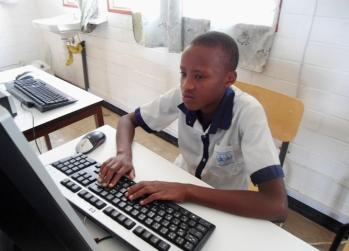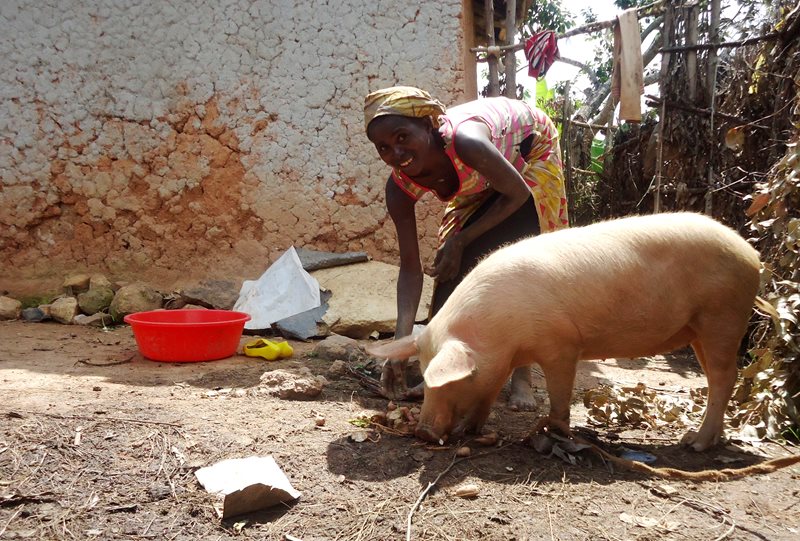A new generation of qualified professionals is urgently needed

The city of Gikongoro is located in Nyamagabe in Rwanda’s Southern Province. Nyamagabe District contains the eastern half of Nyungwe Forest, which brings some tourists to the region as it is home to chimpanzees and other primates.
Living conditions in the region are very tough. Only 52 per cent of Rwandans have access to clean water, and here in the south of the country, the situation is particularly critical. While in the north there is sufficient high-altitude water, in the south the population frequently faces water shortages. Drinking unclean or unsafe water is the cause of many water-borne diseases in the region. 40 per cent of all consultations in health centres are due to malaria, and HIV/AIDS also continues to severely affect the population. Illness is often the cause for a family’s descent into deeper poverty, as most people survive as subsistence farmers, and if they cannot work, they cannot eat. Welfare programmes, free health care and support networks are not sufficiently available.
In Nyamagabe District, there are 263 teachers, most of whom are qualified but are working as volunteers and are occasionally paid by the students’ parents. Because most schools were destroyed during the war, classes are often held in buildings borrowed from churches or private individuals. In most cases, there is no running water, electricity or adequate toilet facilities. There is also a great need for teaching materials, a standardised national curriculum, and additional well-qualified teachers, as the average class size is currently around 33 pupils and not all children are attending school.
The shortage of qualified professionals is a big problem in the country. This particularly affects the agricultural sector, which sustains the majority of the population. The lack of knowledge of, and access to, modern farming methods is causing environmental degradation which, in turn, causes malnutrition.
An urgent need to provide support to families
SOS Children’s Villages began its work in Gikongoro in 1992 due to the great number of vulnerable children due to the war that culminated in the genocide of 1994. In recent years, we have expanded our efforts to reach out to vulnerable families in the surrounding community through the SOS Family Strengthening Programme.
What we do in Gikongoro

We are currently reviewing the way we support children and families in Gikongoro. These are the current activities which we plan to continue over the next few years.
Strengthen families: We ensure that children have access to essential educational, nutritional and health services, and we support parents in protecting and caring for their children, for example by offering guidance on income-generating skills and parenting practices. We provide counselling and psychological support to both children and their caregivers, and we assist families affected by HIV/AIDS. In cooperation with local authorities, we also work towards strengthening the support systems available within the community.
Education: Around 75 children attend the SOS Kindergarten. Due to the great need for teaching facilities in the region, the opening of an SOS Hermann Gmeiner primary school was a very important contribution towards improving children’s lives in Gikongoro. More than 430 pupils attend the school.
Support for young people: We provide young people with training and support until they are able to live independently.
Care in SOS families: We provide some direct care to children who are not able to live with their families. In some cases this is only until a more permanent home is found for them.
Health care: We provide basic health care and treatment to members of the local community who may not otherwise be able to afford it. In 2017 we started a mental health project to counsel children and young people.